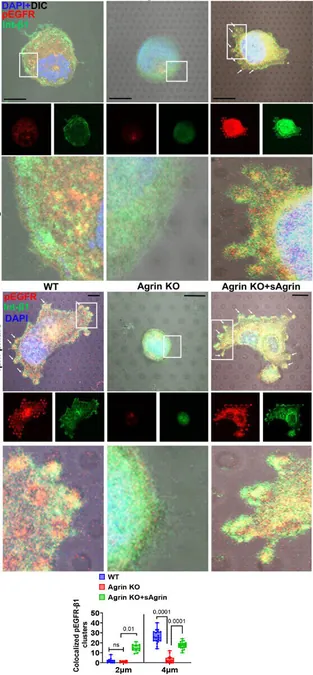
Breakthrough Discovery Unveils Lung Cancer's Weakness
2025-04-11
Author: Nur
A Revolutionary Find in Lung Cancer Research
A groundbreaking study from Roswell Park Comprehensive Cancer Center has identified a hidden vulnerability in the most prevalent form of lung cancer, shedding light on treatment resistance and relapse. Led by Dr. Sayan Chakraborty, this research, published in the journal *Advanced Science*, centers around a surprising protein called agrin.
The Role of Agrin in Cancer Progression
Agrin, found on cell surfaces and within the extracellular matrix (ECM) — the supportive structure surrounding cells — has emerged as a critical player in lung adenocarcinoma, the most common type of non-small cell lung cancer. Dr. Chakraborty's team discovered that mutations in the Epidermal Growth Factor Receptor (EGFR) gene not only fuel cancer growth but also cause an overproduction of agrin in the ECM, enhancing its capacity to drive cancer progression.
A New Hope for Treatment
Dr. Chakraborty states, "Targeting agrin could revolutionize EGFR therapies, significantly lowering lung cancer relapse rates." The researchers employed advanced lung cancer cell lines, preclinical models, and human samples to show that a novel combination therapy aimed at reducing agrin could effectively interrupt cancer progression.
Future Innovations in Cancer Treatment
Looking ahead, there’s potential for a routine blood test measuring agrin levels, which could allow doctors to assess patients' responses to EGFR therapies and predict relapse risks. This innovation promises to be invaluable in tailoring personalized treatment strategies.
Where to Learn More
Dr. Chakraborty is set to present these remarkable findings at the upcoming American Association for Cancer Research (AACR) annual meeting in April 2025, where he will delve deeper into agrin's role in EGFR-driven cancers. His presentation, titled "An Agrin Mechanotransduction for EGFR-Addicted Cancers," will take place at the McCormick Place Convention Center in Chicago.
This breakthrough not only opens new avenues for lung cancer treatment but also ignites hope for enhanced patient outcomes in the fight against this formidable disease.




 Brasil (PT)
Brasil (PT)
 Canada (EN)
Canada (EN)
 Chile (ES)
Chile (ES)
 Česko (CS)
Česko (CS)
 대한민국 (KO)
대한민국 (KO)
 España (ES)
España (ES)
 France (FR)
France (FR)
 Hong Kong (EN)
Hong Kong (EN)
 Italia (IT)
Italia (IT)
 日本 (JA)
日本 (JA)
 Magyarország (HU)
Magyarország (HU)
 Norge (NO)
Norge (NO)
 Polska (PL)
Polska (PL)
 Schweiz (DE)
Schweiz (DE)
 Singapore (EN)
Singapore (EN)
 Sverige (SV)
Sverige (SV)
 Suomi (FI)
Suomi (FI)
 Türkiye (TR)
Türkiye (TR)
 الإمارات العربية المتحدة (AR)
الإمارات العربية المتحدة (AR)